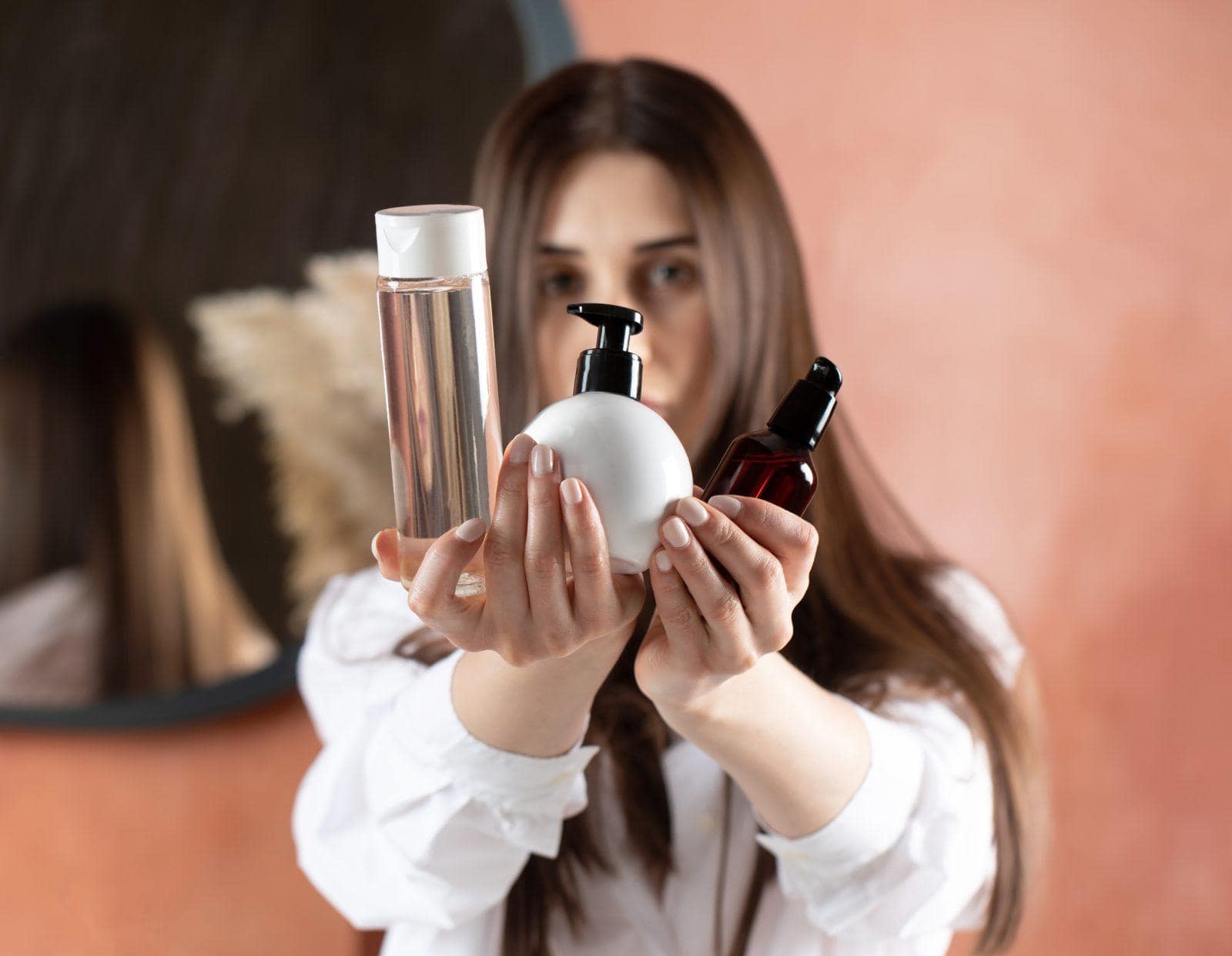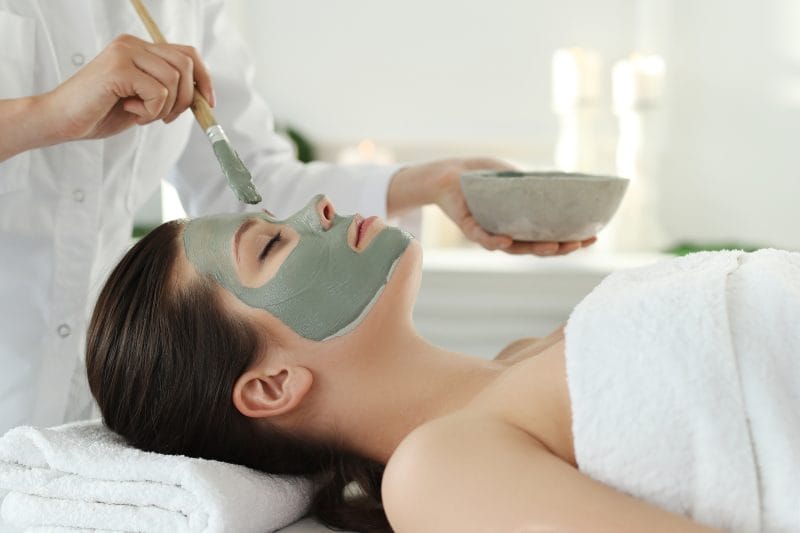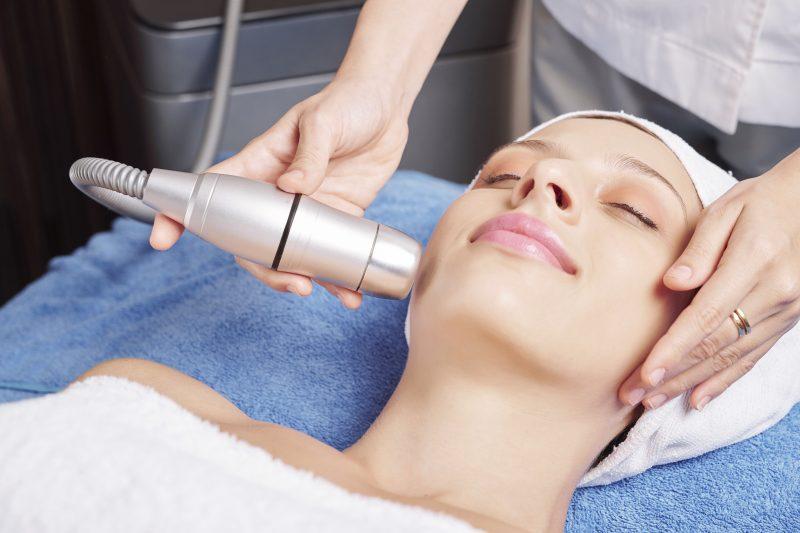Estheticians, Professional Skincare, Skincare
The Essential Skin Care Routine: What You Really Need for Healthy Skin
When it comes to skincare, the beauty industry bombards us with a never-ending array of products, making it difficult to determine what our skin truly needs. From cleansers to creams, serums to sunscreens, the options seem endless. But do we really need all of these products, or is there a simpler and more effective approach to skincare? To help cut through the confusion, we consulted skincare experts, reviewed the relevant research, and relied on our own 50 year heritage in the skincare industry to compile a list of essential elements for a skincare routine that will keep your skin healthy and glowing.
The Basics: Cleanser, Moisturizer, and Sunscreen
At the core of any effective skincare routine are three key products: a gentle cleanser, a moisturizer, and a sunscreen. These three essentials form the foundation of a daily regimen that will give your skin the care it needs. Let’s explore each of these elements in more detail:
Cleanser: The First Step to Healthy Skin
A good cleanser is the cornerstone of any skincare routine. It removes dirt, oil, and impurities from the skin, leaving it clean and refreshed. But finding the right cleanser can be overwhelming with so many options available. According to dermatologist Dr. Caren Campbell, a gentle cleanser is all you need. Look for a product that effectively removes dirt and oil without stripping your skin of its natural moisture. Whether it’s a cream or foaming cleanser, the key is to choose one that suits your skin type and leaves your skin feeling clean and balanced.
Moisturizer: Nourish and Protect Your Skin
Moisturizer is another essential product that should never be skipped. It helps to hydrate and nourish the skin, keeping it soft and supple. As we age, our skin’s ability to retain moisture diminishes, making moisturizer even more important. According to dermatologist Dr. Katrina Abuabara, a simple drugstore moisturizer is often all you need to maintain healthy skin. Look for a product that helps protect your skin barrier, which is crucial for preventing inflammation and maintaining overall skin health. Ointments and oils are the most moisturizing options, followed by creams, lotions, and gels. Choose one that suits your skin’s needs and preferences.
Sunscreen: Your Skin’s Best Defense
Perhaps the most crucial step in any skincare routine is sunscreen application. Protecting your skin from the harmful effects of the sun is essential for preventing skin cancer and premature aging. Dr. Lindy Fox, a dermatology professor, emphasizes the importance of daily sunscreen use for everyone, regardless of skin tone. Even if you spend most of your day indoors, UVA rays can penetrate windows and cause damage to your skin. Choose a broad-spectrum sunscreen with an SPF of 30 or higher and apply it generously to all exposed skin. Don’t forget to reapply every two hours, especially if you’re sweating or swimming. Supplement your sunscreen routine with sun-protective clothing for added protection.
Tailoring Your Skincare Routine
While the cleanser, moisturizer, and sunscreen form the foundation of a skincare routine, it’s important to tailor your regimen to your specific needs. Every individual’s skin is unique, and understanding how your skin reacts to different products and environmental factors is key to achieving optimal skin health. Here are a few considerations to keep in mind:
Skin Type: Finding What Works for You
Understanding your skin type is crucial in selecting the right products for your skincare routine. Whether you have oily, dry, combination, or sensitive skin, there are products designed to address your specific concerns. If your skin tends to be oily, you may prefer a lighter moisturizer or use it less frequently. On the other hand, if your skin is dry, a heavier moisturizer may be necessary to provide sufficient hydration. Experiment with different products to find what works best for your skin.
Additional Concerns: Targeted Solutions
In addition to the essential products, you may have specific concerns that require targeted solutions. Whether it’s acne, signs of aging, hyperpigmentation, or sensitivity, there are products available to address these issues. Serums, for example, are lightweight products with a high concentration of active ingredients that can help target specific concerns. Retinol, hyaluronic acid, and niacinamide are common ingredients found in serums that address various skin issues. However, it’s important to note that serums are not a requirement for a basic skincare routine and should be added based on individual needs.
Eye Care: Delicate Skin Requires Special Attention
The skin around the eyes is delicate and requires extra care. While a standard moisturizer can be used, dermatologist Dr. Amie Sessa recommends using an eye cream specifically formulated for this sensitive area. Eye creams are designed to address common concerns such as fine lines, puffiness, and dark circles. Look for products that are gentle and specifically formulated for the delicate eye area.
Debunking Skincare Myths
With the abundance of information and marketing surrounding skincare, it’s important to separate fact from fiction. Let’s debunk some common skincare myths:
Myth #1: Complex and Expensive Routines are Necessary
Contrary to popular belief, you don’t need a complex and expensive skincare routine to keep your skin healthy as you age. Dr. Campbell emphasizes that a simple drugstore moisturizer, along with sunscreen, is the most vital part of an anti-aging skincare routine. Moisturizer helps protect the skin barrier and prevent inflammation, which is crucial for overall skin health. Investing in a good moisturizer is more important than splurging on multiple expensive products.
Myth #2: Sunscreen Blocks Vitamin D Absorption
While it’s true that sunscreen reduces vitamin D absorption, it doesn’t mean you should skip sunscreen altogether. Dr. Fox explains that most people still get enough unintended sun exposure even with sunscreen use, making vitamin D supplements unnecessary. It’s essential to wear sunscreen every day and protect your skin from the harmful effects of the sun while ensuring you’re getting enough vitamin D through other sources such as diet and supplements if necessary.
Myth #3: Dark Skin Doesn’t Need Sunscreen
People with darker skin tones may have a lower risk of skin cancer, but that doesn’t mean they can skip sunscreen. Dr. Jenna Lester emphasizes that sunscreen is still important for people with darker skin tones to protect against sun damage, uneven skin tone, and other pigmentary disorders. Regular sunscreen use can also help prevent melasma, a condition characterized by dark patches on the skin. Everyone, regardless of skin tone, should prioritize sun protection.
Myth #4: “Clean” or Organic Products are Better
The “clean” beauty movement has gained popularity, but it’s important to approach these products with caution. Dr. Fox warns that products marketed as “clean,” “natural,” or organic may contain ingredients that can cause skin allergies or irritations. The term “clean” is not well-defined and lacks scientific backing. Instead, focus on choosing products that have scientifically proven efficacy, contain ingredients that are good for your skin, and won’t cause allergies or irritations. Look for ingredients like retinoids, niacinamide, ceramides, and squalane that have specific benefits for your skin.
Developing a Healthy Skin Care Routine
Now that you have a better understanding of the essential elements of a skincare routine and have debunked common myths, it’s time to develop your personalized regimen. Here’s a step-by-step guide to help you get started:
Morning Routine:
- Cleanse your face with a gentle cleanser to remove impurities.
- Apply moisturizer to hydrate and nourish your skin.
- Protect your skin by applying a broad-spectrum sunscreen with an SPF of 30 or higher.
- Consider using an eye cream specifically formulated for the delicate eye area.
Nighttime Routine:
- Cleanse your face again to remove makeup, dirt, and oil accumulated throughout the day.
- Apply moisturizer to keep your skin hydrated while you sleep.
Tailor Your Routine:
- Consider your skin type and choose products that address your specific concerns.
- Experiment with serums or targeted treatments if necessary.
- Use an eye cream to address the delicate skin around the eyes.
Sun Protection:
- Wear sunscreen every day, even on cloudy days or when indoors.
- Reapply sunscreen every two hours, especially if you’re sweating or swimming.
- Supplement sunscreen with sun-protective clothing for added protection.
Debunk Skincare Myths:
- Understand that simplicity and affordability are key to an effective skincare routine.
- Use sunscreen daily to protect your skin while ensuring vitamin D intake through other sources.
- Regardless of skin tone, prioritize sun protection to prevent sun damage and maintain an even skin tone.
- Focus on choosing skincare products with scientifically proven efficacy and skin-friendly ingredients.
Remember, skincare is a journey of trial and error. What works for one person may not work for another. Pay attention to how your skin reacts to different products and adjust your routine accordingly. With a consistent and personalized skincare regimen, you can achieve healthy, glowing skin that radiates confidence.





